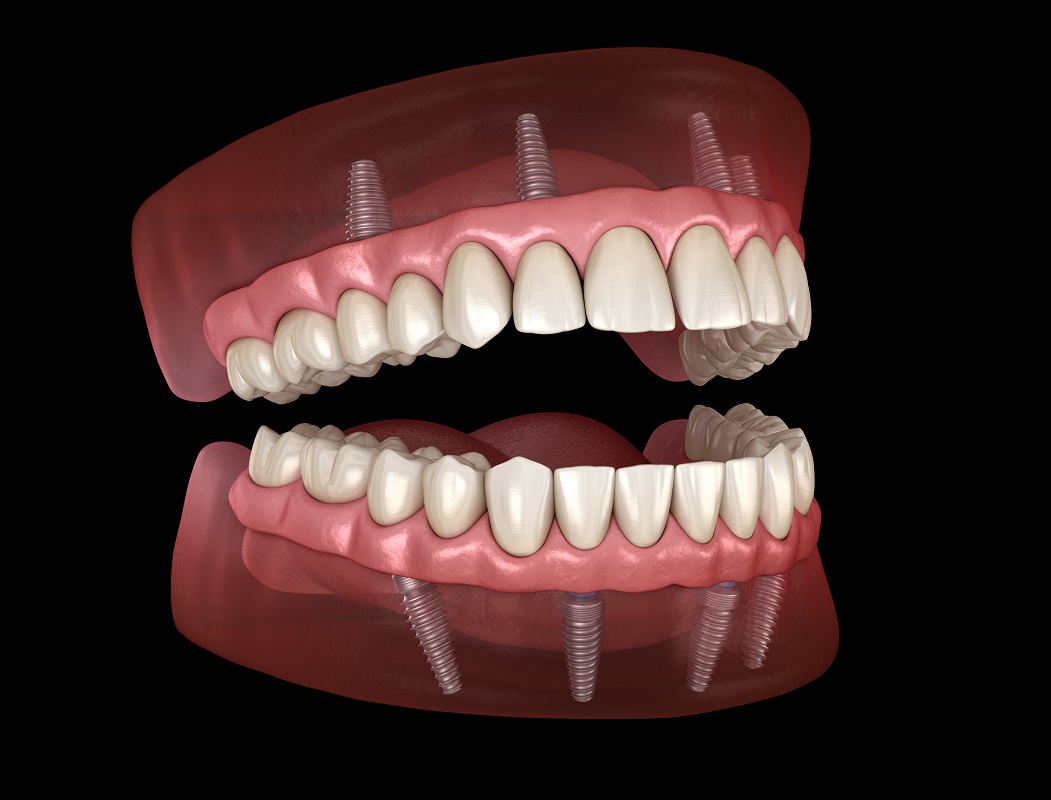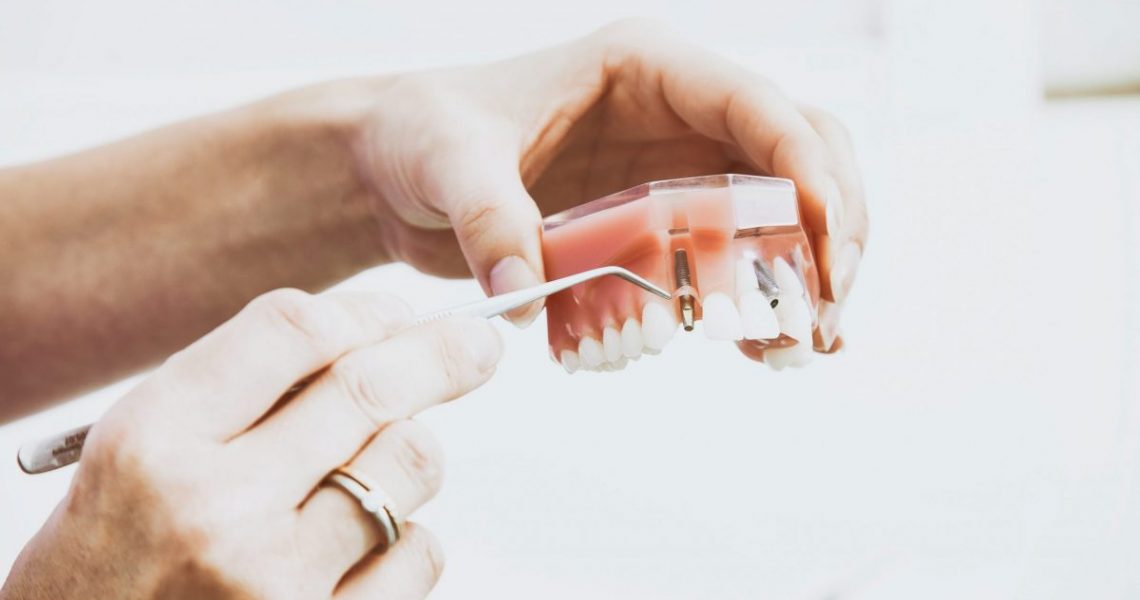When you are looking to have gaps in your teeth filled, you will need to think about which option is the most suitable for you.
For most people, the idea of wearing a denture seems OK, but they may have concerns about it moving or rubbing against their gums. Others may be fine with the idea of a fitted bridge, but may have worries about the metal connector being visible.
Luckily, there is an option which can be used to replace a single tooth, a bridge or an entire upper and lower denture; oral implants.
These are fitted to your jaw via surgery and, once they have fused in place, your dentist will be able to attach either a single crown, a bridge or a set of dentures securely.
While this may sound too good to be true, it is also likely that before you rush off to book this treatment, you will have some questions. So, here are the answers to 5 common questions that are asked about oral implants.

Are there different kinds of oral implants?
Yes, there are.
The most commonly used kind is known as an endosteal implant. These dental implants Bondi Junction look like titanium screws and are fitted to the jaw via a basic fitting. For this type of implant to work, you need to have a healthy amount of jawbone that is also thick enough to support the implant. Next, there is a subperiosteal implant, which looks like a metal framework. This is placed between the jaw and the gum and acts as a base for the teeth to be attached to if there are issues with the bone. Then there is the zygomatic implant, which is affixed to the top jaw. Rather than being attached to the jaw itself, it is attached to the cheekbone and is around 3 times longer than an endosteal option.
Who can have them fitted?
As mentioned before, to have an endosteal implant fitted, you will need to have a healthy amount of jawbone and that bone will need to be disease-free.
The other options are not as reliant on a healthy jaw and can be fitted to most people, provided that they have good overall oral health and are over the age of 18 years.
Aren’t they really expensive?
Many people have concerns that oral implants will be pricey. But, most clinics that offer oral implants are also able to offer financing options, so suitable patients will be able to pay their treatments off each month.
How long will it take for the implant to fuse?
This will depend on the implant type, your age, your health and other factors, such as your adherence to aftercare advice. For endosteal implants, it takes an average of 3 to 6 months for the implant to fuse. Subperiosteal doesn’t need to fuse, so can be used to secure the teeth in around a month and the zygomatic implant can take between 6 to 9 months.
Is the surgery uncomfortable?
No, your dentist will ensure that your mouth is fully numbed before beginning the surgery.
DISCLAIMER OFFSITE
Any surgical or invasive procedure carries risks. Before proceeding, you should seek a second opinion from an appropriately qualified health practitioner.

